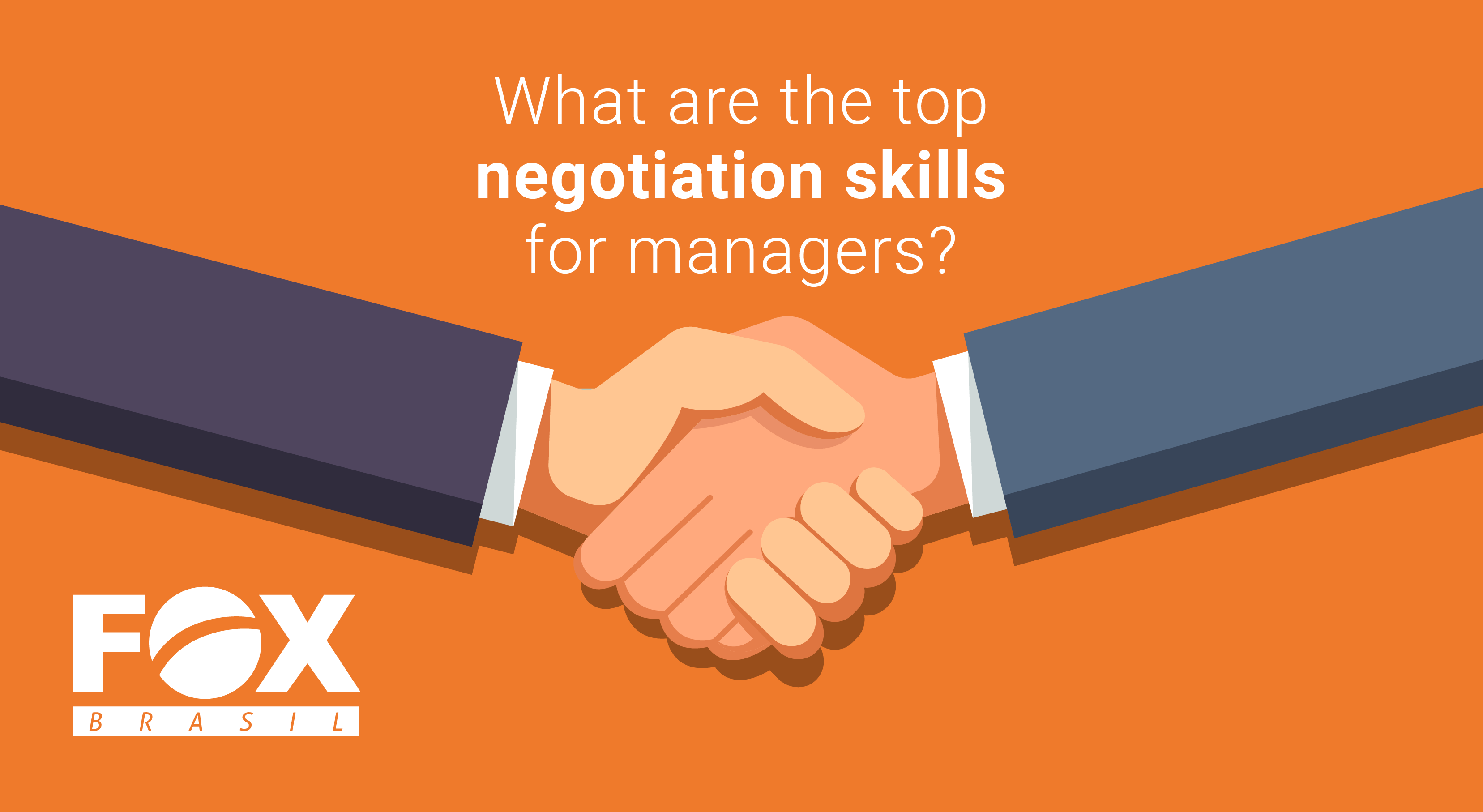What are the top negotiation skills for managers?

FOX Brasil Tips for Freight Forwarders
There are no doubts that advanced negotiation skills for managers and other professionals are one of the key aspects that guarantee a business’ success. In the logistics segment, this affirmation is even more accurate, seeing that as a b2b market with so many choices of freight forwarders to work with, negotiation is usually what determines which company gets each sale.
Therefore, if you wish to keep achieving great results as a company, working on your commercial team’s negotiation skills is a must. It is important to establish the mindset that, no matter how good you think you are at prospecting, no one completely masters the art of negotiation. After all, the same way the logistics market is evolving nonstop, so are the sales strategies and negotiation techniques.
In case you are wondering what kind of negotiation skills could contribute to your company’s sales and profit growth, this post is likely to be very helpful. Below, we have listed the top negotiation skills for managers and commercial teams to work on in order to get even more customers onboard. Check it out and see what they are and how to improve your performance at each one of them!
Top negotiation skills for managers and professionals in logistics
-
Have clear negotiation goals as a company
Although you might think your company’s goals are clear to everyone on your team, it is not unusual to go into a negotiation without knowing exactly what you aim to walk away with. So, keep in mind that the most basic thing to acknowledge when starting to negotiate with another company is what the best possible outcome your business could get out of it is.
Of course, this could vary from case to case, however, knowing what to expect at the very beginning of a negotiation will help to define a business plan, know what to do to reach your goals or even have a plan B in case something doesn’t go as expected.
-
Determine your core strategy to reach these goals
After defining what your goals are as a business, the next step is to determine what will be your business’ core strategy to achieve them. Creating a core negotiation strategy basically consists of defining what point needs to be made to the customer during negotiation, in order to convince them that your company is presenting the ideal solution for their needs. Therefore, this is when you make sure to know what differentials you offer as a company and how to show your prospects that they should choose you over the competition.
-
Build motivation
More importantly than having self-motivation, is to be able to pass this enthusiasm to your potential buyers. In other words, one of the most powerful aspects of a negotiation is to show your prospect that you are really committed to listening to their needs/expectation and providing them with the best deal they could find in the market.
Business negotiations can be rather boring, and it is your job to come up with strategies that will not only catch your potential partner’s attention but show them you have your head in the game and that they would be missing out on an outstanding customer service in case they didn’t hire your logistics solutions.
-
Practice fast decision-making to different scenarios
Unlike companies from different segments, which sell services and products that don’t need to be adapted to the real need of their partners, the logistics sector is quite unique. That is, every partnership you close might require a different kind of operation or solution developed – the scenarios are constantly changing based on a variety of external factors, such as budget, deadlines, size/content of the cargo shipped, ideal modal of transport or even problems with a shipping line/customs’ services in a specific country.
Therefore, a negotiation skill every logistics professional should practice is being able to present the ideal solution under different circumstances and variables. And more importantly: doing it faster than your competitors do.
-
Communication is still everything
The main ability that any negotiator should have is and will always be establishing clear and effective communication throughout the entire business transaction path. Misunderstandings can lead to several problems with the outcome of the negotiation.
And to avoid this, it is essential that all professionals who conduct some kind of business negotiation have the communication and interpersonal skills necessary to maintain a clear conversation, which not only aligns with their business’ goals but also coherent to the prospect’s expectations in that meeting.
Practicing these negotiation skills for managers and logistics professionals will give your business more power of bargain and help you close as many sales as possible!
To make your logistics company’s negotiation process easier, count on the assistance of a freight forwarder that is ready to give you full support when representing your cargo overseas, handling it with priority, safety, and efficiency. At FOX Brasil, we have all the infrastructure and expertise to be your Brazilian logistics partner and provide you with ideal solutions to transport the most diverse products. Do you wish to learn more?
